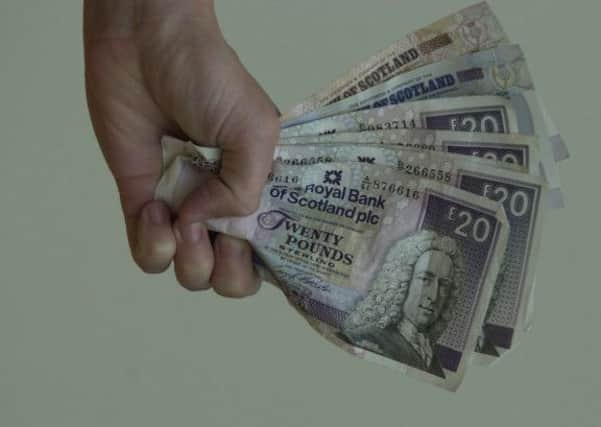Comment: Both sides of big debate will need plan B


For rest of UK (rUK) there is the problem of seeing its trade deficit mushroom with the loss of North Sea oil and whisky exports.
Of course, rUK will have a trade surplus with Scotland but not sufficient to eat into a current account getting on for 8 per cent of GDP. As it is, within the present UK state, the surge in the value of sterling since the turn of the year has led to a spate of profit warnings from big exporters like Rolls Royce.
Advertisement
Hide AdAdvertisement
Hide AdOkay, I know that the UK has had no difficulty to date in funding its chronic current account deficit from capital inflows. But the markets are already chattering about Britain’s inability to rebalance the domestic economy towards exports, or to radically improve industrial productivity.
Eventually, these failures must impact on the cost of foreign borrowings; ie: lead to an increase in UK interest rates to keep lenders happy. Especially if chancellor Ed Balls tries to borrow his way out of trouble.
You can see this in reverse in Ireland. I heard Alistair Darling make his usual disparaging allusions to Ireland during the Great Debate.
Darling seems not to have noticed that the yield on Irish ten-year bonds is now actually below those of the UK. In other words, the cost of government borrowing in Ireland is less than here – a mark of international confidence.
Why? Because the Irish economy is enjoying a genuine export-led recovery which convinces international lenders that their money is safe. An independent Scotland with a comfortable trade surplus would find itself in a similar situation.
However, Ireland also has the European Central Bank as a backstop. Logically, an independent Scotland – denied access to the Bank of England as lender of last resort – will have to create its own central bank, as suggested in this week’s paper from the National Institute of Social and Economic Research.
Fortuitously, Scotland’s £50 billion (equivalent) annual foreign currency earnings from oil and whisky exports would build up, in a decade, to a trillion pound reserve, to provide this central bank with a more than comfortable reserve base.
(Interesting fact: Britain’s official holdings of foreign exchange reserves are tiny by global standards – only slightly more than Peru! This makes the UK vulnerable to a run on sterling if the markets ever lose confidence.)
Advertisement
Hide AdAdvertisement
Hide AdWhy does Alex Salmond place such faith in a sterling union? After all, having its own currency and central bank would let Scotland set its own interest rates. However, an independent currency implies possible exchange rate differences with rUK.
The large Scottish financial sector might worry about that and decamp to London or even Dublin.
To avoid this, Scotland will need to peg the Scottish pound to sterling, at parity; ie: a pound Scots would equal a pound sterling.
Technically, this is perfectly doable. Denmark, for instance, keeps its currency from appreciating against that of its big German neighbour, lest it choke exports.
Which brings us back to having Scotland’s monetary policy linked to that of rUK, as Ireland’s was for 50 years.
Of course, breaking that link was the beginning of the Irish export miracle.